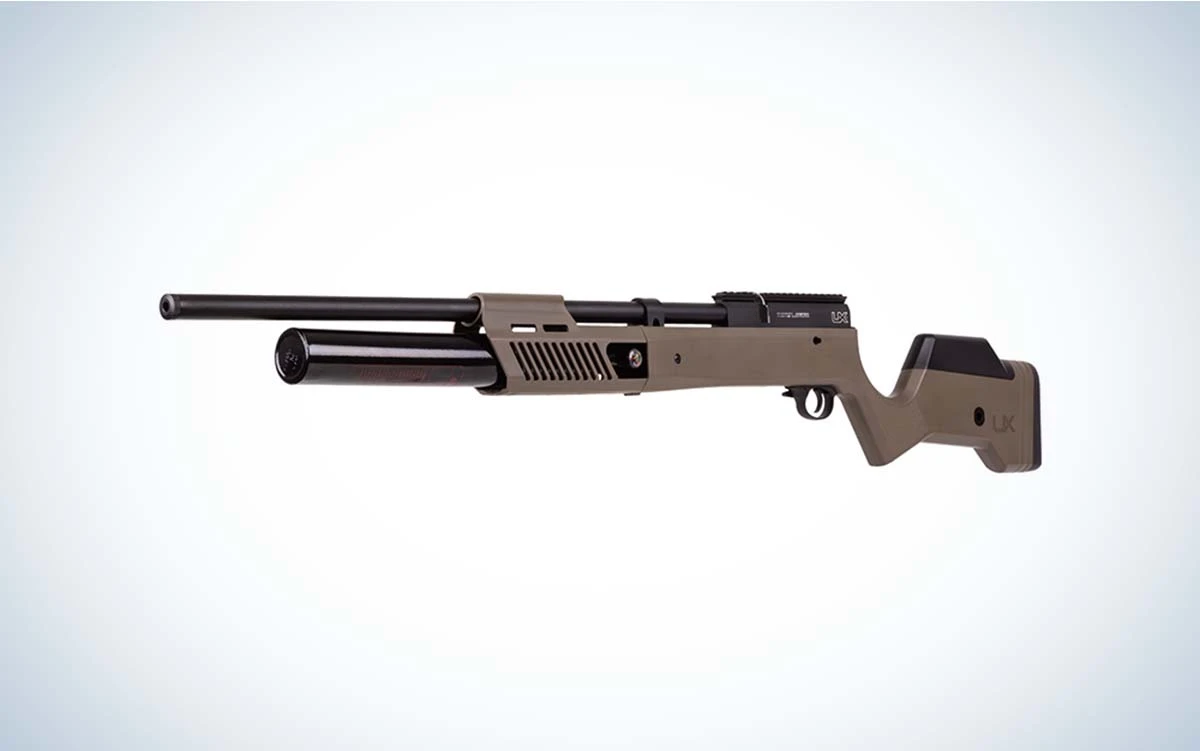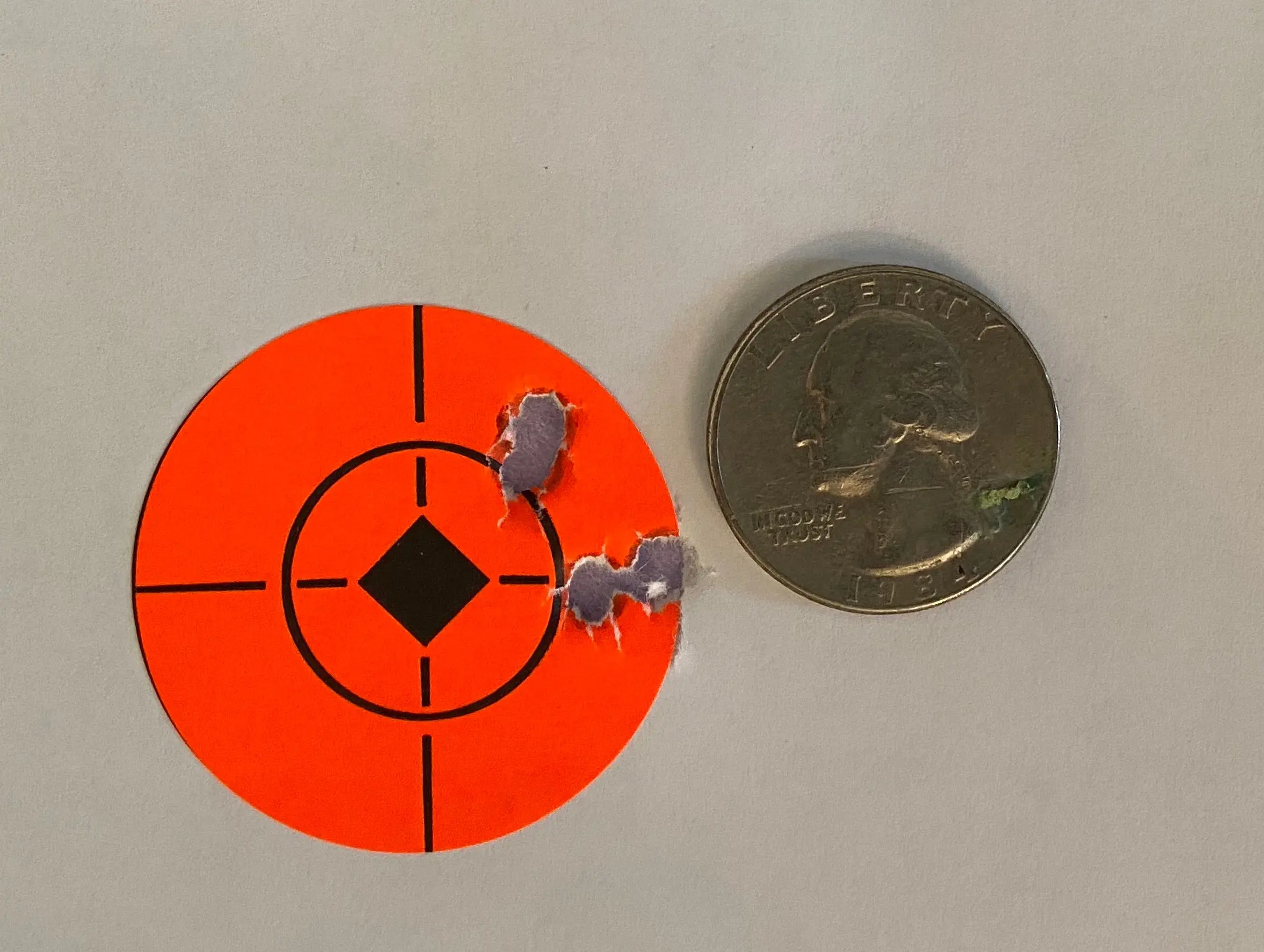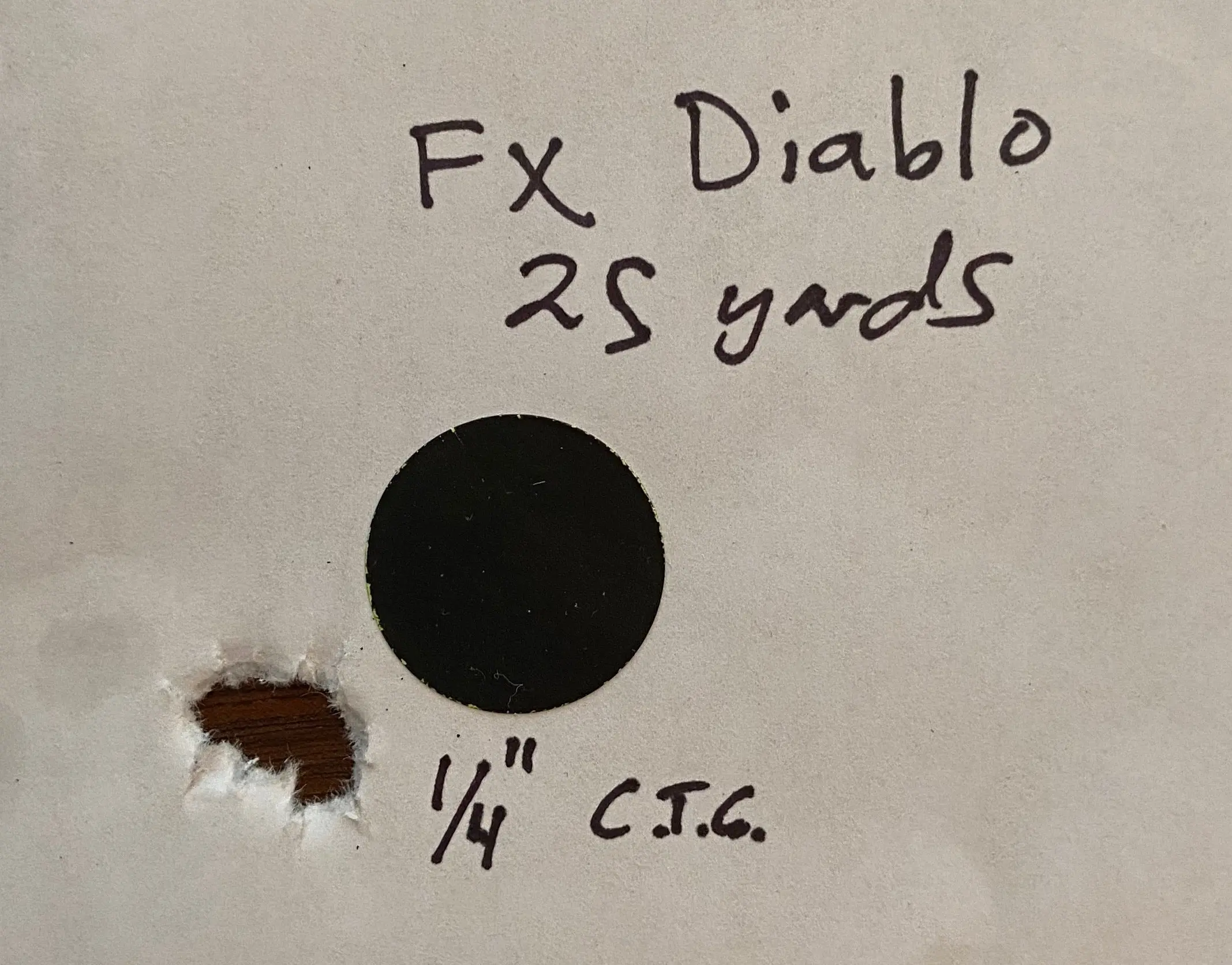_We may earn revenue from the products available on this page and participate in affiliate programs. Learn more ›
_
The Umarex Gauntlet 2 is a powerful and accurate pre-charged pneumatic air rifle that provides good performance at a modest price. With its solid accuracy and durable synthetic stock, it’s a good option for knocking around in the hunting woods or on the range, even for experienced airgunners who might prefer to leave their big rigs comfortably in the safe during less-than-perfect conditions.
Umarex Gauntlet 2 Specs
Type: PCP
Action: Bolt action repeater
Caliber: .22 (tested); also available in .25 and .30
Projectile Type: Pellets
Feet per Second: 1075 with light pellets
Energy at Muzzle: 33 fpe in .22 (51 fpe in .25 and 99 fpe in .30)
Sights: None; Picatinny/11 mm dovetail rail for scope mounting
Weight: 8.5 pounds
Required Accessories: Scope; air tank or compressor

What Kind of Airgun is the Gauntlet 2?
While not exactly entry-level, the Umarex Gauntlet 2 is a low-frills PCP that, like the original Gauntlet, offers solid performance at a good price. It is accurate enough that it could serve as a decent starter rifle for someone looking to test bench rest shooting waters without dropping a bunch of cash but, really, it’s probably best suited for hunting small- to medium-sized game and general fun target shooting.
How Does it Work?
The Umarex Gauntlet 2 features a 24-cubic-inch air tank that is filled through a Foster quick disconnect port on the right side of the foregrip. The max fill level is 4500 PSI (310 bar) so a fill tank or compressor is pretty much mandatory unless you’re looking for some substantial home exercise to complement your regular trips to the CrossFit gym. A pressure gauge is opposite of the fill port.
The rifle features a non-adjustable regulator, which is set at 1900 PSI (131 bar) in .22 caliber. The reg is set at 2100 psi (145 bar) for .25 caliber and a stout 2,800 psi (193 bar) in .30. A bolt action operates the easy-to-load rotary magazine, which holds 10 pellets in .22 (8 pellets in .25 and 7 pellets in .30). The 28.25-inch barrel is baffled to keep noise levels modest. The single-stage trigger is adjustable, but the tank and stock need to be removed.
The simplicity of this gun will appeal to those new to the PCP world, or who are looking for a rifle that can provide consistent performance right out of the box.
How I Tested the Umarex Gauntlet 2
I shot several tins’ worth of different pellets through the Umarex Gauntlet 2 over the course of a couple of months. Most of the shooting was at 25 yards in my yard (the Gauntlet 2 is relatively backyard friendly but your neighbors will hear you shooting if they’re outdoors) but I took it to the range a few times to test it out to 100 yards.
I outfitted the rifle with the excellent Hawke Sidewinder 6-24 x 56 FFP scope. That glass costs about twice what the gun does, but good optics will (and did) help tap the Gauntlet 2’s accuracy potential.
Performance
The Gauntlet 2 isn’t exactly silky smooth, but it shoots hard and straight.
Umarex claims that cocking effort has been reduced by 15 percent from the original Gauntlet. Even so, cocking this gun takes some effort, especially in the early going. After breaking in the gun with 100 shots or so I put the gun in a vice and used a digital scale to test the max pull, which consistently hit about 28 pounds. There are two slots in the stock for the bolt: one for when the pellet is in the breech and the second to hold the bolt back under the significant spring pressure. Using that slot is a must for inserting and removing magazines. At first, the magazines fit very snugly but inserting and removing them got smoother and easier over time.
The trigger is not sophisticated and the break is somewhat mushy. If one were to want to shoot off the bench at longer distances it would be worth spending some time on the trigger. I got used to it quickly and my accuracy results were fine so I didn’t bother trying to adjust it, primarily because I didn’t want to deal with removing the air bottle and stock, which is required.
The manual safety is on the front right side of the trigger guard. It’s a bit stiff and clunky. It was a little nerve-wracking having to pull the safety back toward the trigger. It seems that a finger that slipped could theoretically hit the trigger.
The synthetic stock has a fairly narrow grip, which was quite comfortable. An adjustable comb allows for a good shooting position when using medium- and high-mount scope rings. There are M-LOK slots for accessories on the bottom and sides of the forearm.
The Umarex Gauntlet 2 is quite accurate. I always like to bring along a second, familiar rifle when conducting accuracy tests at 50 yards and beyond. That second rifle serves as something of a “control” for accuracy testing. The day I did most of my long range shooting with the Gauntlet 2 I also had an FX Crown MKII on hand. The Crown MKII outshot the Gauntlet 2, but only minimally, a difference that could easily be attributable to the much better trigger on the Crown (which also happens to cost about four times as much as the Gauntlet 2).
At 50 yards shooting off a basic Caldwell Lead Sled
, The Gauntlet 2 consistently produced sub-1-inch (center-to-center) five-shot groups, with groups shrinking closer to a half-inch when wind conditions were more favorable. At 25 yards the rifle shoots ragged single hole groups. During testing I never had good enough wind conditions at the outdoor range to fairly judge the rifle’s performance at 100 yards. The rifle’s level of accuracy at 50 yards and in is obviously more than sufficient for hunting or pesting.

At 50 yards, the Gauntlet consistently produced sub-one-inch five-shot groups. Mark Taylor
The Gauntlet 2 favored certain pellets, which was expected given its lack of adjustability. I had my best results with the 18.13-grain diabolo-shaped pellets from FX
. H&N Baracuda Match pellets (21.14 grains)
also did well.
I also tested Beeman Laser pellets, which at just a hair over 13 grains are about as light as lead pellets come. Not surprisingly, they showed great velocity, maxing out about 1075 fps. Accuracy, however, was awful with a 10-shot group larger than 2 inches at 25 yards.

With the pellets it favored, like FX’s .22 Diabolo 18.13 grain, the Gauntlet 2 was incredibly accurate, producing groups under a half-inch. Mark Taylor
So, what about slugs? I eagerly loaded a magazine with 22-grain FX hybrids — and found that they wouldn’t feed from the rotary magazine into the breech without giving the bolt handle a serious smack. They loaded slightly more easily from the single-shot tray that comes with the rifle. All that said, they didn’t group as well as the better pellets so it was kind of a moot point.
How does that regulator perform? Very well. For example, one 23-shot string with those 18.1-grain FX Diabolos featured a high of 949 fps with a low of 935 fps and a standard deviation of 4.2. Actually, all but two shots were in the 942-949 range. That consistency favorably compares to much more expensive rifles. The average of 944 fps was just a nick under 36 fpe, a number that actually exceeds the energy numbers from Umarex.
What the Gauntlet 2 Does Best
For general field use — including hunting and casual target shooting — in a roughly $400 rifle, it’s hard to find much to fault about the Umarex Gauntlet 2. No, it’s not highly adjustable. But the lack of adjustability will appeal to shooters who want good, consistent performance without having to put a lot of time and effort into experimenting with different regulator and hammer spring settings.
The rifle’s big air tank is a nice plus for days in the field. With a full charge it will produce more than 70 shots before the regulator dips below 1900 psi. You’ll want to have a fill tank on hand if you’re at the range but you won’t need one while hunting unless you’re in an extremely target-rich environment.
The futuristic styling won’t be for everyone, but even as someone who loves old school styling in my rifles I found it grew on me. If I owned this rifle, one thing I would do is immediately remove the tank and paint it carbon black. The gloss black tank (with its bright red safety message) just looks out of place in the FDE stock.
What it Does Worst
With its good barrel and very consistent regulator, the Gauntlet 2 is a good performer out of the box. It would be even better with an improved trigger. Several other manufacturers have been able to put decent two-stage triggers into rifles at and even below this price point. Even if improving the trigger pushes the price up by a bit, it would be a worthy trade-off and could help the Gauntlet 2 compete even better in an air rifle segment that is becoming more crowded by the day with other good, budget-friendly PCPs.
While many Gauntlet 2 shooters will likely appreciate the rifle’s simplicity, the lack of adjustability does limit the rifle’s flexibility. Rather than being able to tune the gun for certain situations and preferred projectiles, shooters will need to find what pellets work best for them and stick with them.
Does the Umarex Gauntlet 2 Deliver on its Mission?
The Umarex Gauntlet 2 isn’t meant to compete with precision, expensive air rifles
. It’s a powerful, accurate workhorse that provides very good field performance for a modest price.
Plenty of shooters love tinkering and tuning their rifles and pistols for certain situations and/or to squeeze out every bit of performance, but there is something to be said for simplicity, too. When you can spend roughly $400 for a gun that will shoot almost as well as guns costing four and five times that much, that’s pretty appealing. It’s a reason the Gauntlet 2 will likely find a foothold not only with new shooters just testing the PCP waters, but with avid airgunners looking for a good, budget-friendly hunting and plinking rifle.






